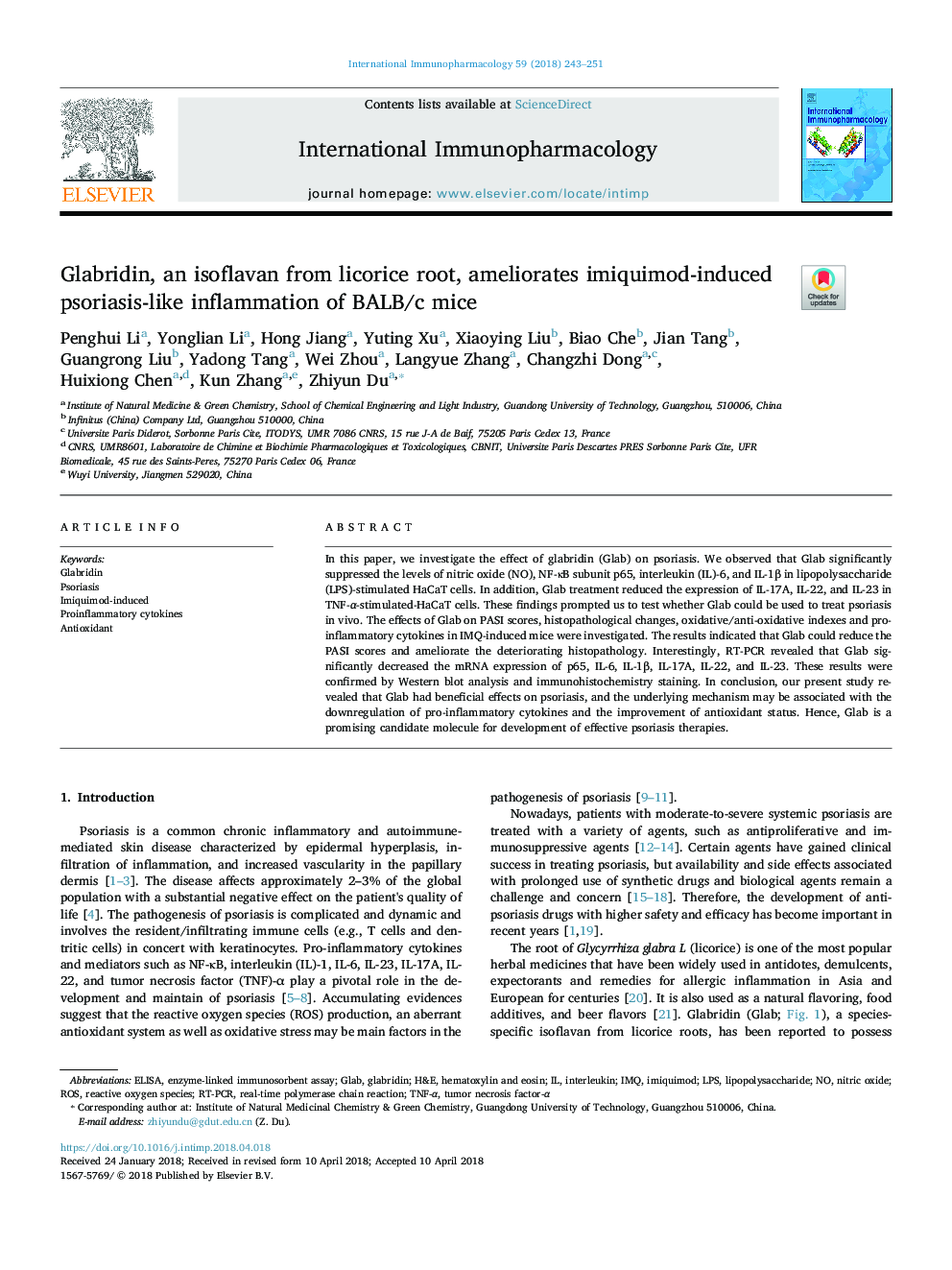| کد مقاله | کد نشریه | سال انتشار | مقاله انگلیسی | نسخه تمام متن |
|---|---|---|---|---|
| 8531200 | 1559731 | 2018 | 9 صفحه PDF | دانلود رایگان |
عنوان انگلیسی مقاله ISI
Glabridin, an isoflavan from licorice root, ameliorates imiquimod-induced psoriasis-like inflammation of BALB/c mice
دانلود مقاله + سفارش ترجمه
دانلود مقاله ISI انگلیسی
رایگان برای ایرانیان
موضوعات مرتبط
علوم زیستی و بیوفناوری
ایمنی شناسی و میکروب شناسی
ایمونولوژی
پیش نمایش صفحه اول مقاله

چکیده انگلیسی
In this paper, we investigate the effect of glabridin (Glab) on psoriasis. We observed that Glab significantly suppressed the levels of nitric oxide (NO), NF-κB subunit p65, interleukin (IL)-6, and IL-1β in lipopolysaccharide (LPS)-stimulated HaCaT cells. In addition, Glab treatment reduced the expression of IL-17A, IL-22, and IL-23 in TNF-α-stimulated-HaCaT cells. These findings prompted us to test whether Glab could be used to treat psoriasis in vivo. The effects of Glab on PASI scores, histopathological changes, oxidative/anti-oxidative indexes and pro-inflammatory cytokines in IMQ-induced mice were investigated. The results indicated that Glab could reduce the PASI scores and ameliorate the deteriorating histopathology. Interestingly, RT-PCR revealed that Glab significantly decreased the mRNA expression of p65, IL-6, IL-1β, IL-17A, IL-22, and IL-23. These results were confirmed by Western blot analysis and immunohistochemistry staining. In conclusion, our present study revealed that Glab had beneficial effects on psoriasis, and the underlying mechanism may be associated with the downregulation of pro-inflammatory cytokines and the improvement of antioxidant status. Hence, Glab is a promising candidate molecule for development of effective psoriasis therapies.
ناشر
Database: Elsevier - ScienceDirect (ساینس دایرکت)
Journal: International Immunopharmacology - Volume 59, June 2018, Pages 243-251
Journal: International Immunopharmacology - Volume 59, June 2018, Pages 243-251
نویسندگان
Penghui Li, Yonglian Li, Hong Jiang, Yuting Xu, Xiaoying Liu, Biao Che, Jian Tang, Guangrong Liu, Yadong Tang, Wei Zhou, Langyue Zhang, Changzhi Dong, Huixiong Chen, Kun Zhang, Zhiyun Du,